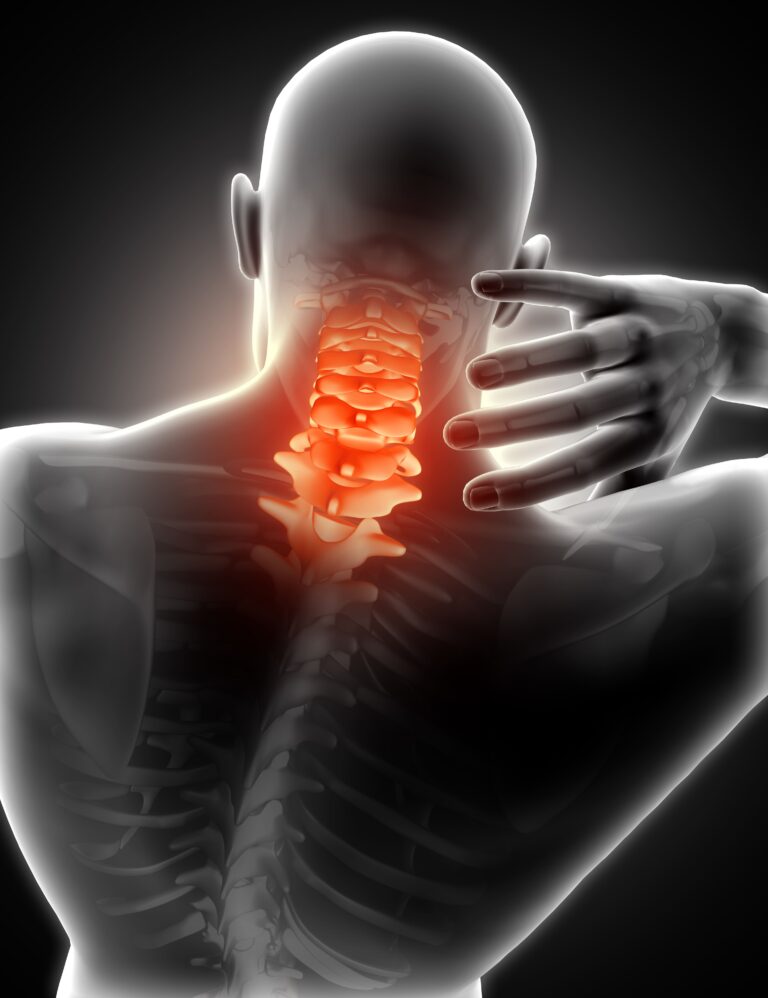Neck pain is one of the most common musculoskeletal complaints in adults. Whether it’s a dull ache after a long workday or a sharp pain that comes out of nowhere, understanding the root cause is the first step toward lasting relief.
If you’ve been wondering what causes neck pain, this article breaks down the most frequent reasons behind your discomfort, how posture plays a major role, and when it’s time to seek professional help.
Common Causes of Neck Pain
Neck pain can stem from many different factors, from lifestyle habits to underlying health conditions. Let’s explore the most common causes.
Muscle Strain and Tension
One of the top causes of neck pain is muscle strain. Repetitive movements, working at a computer for extended hours, or sleeping in an awkward position can lead to overused or tense neck muscles. Even emotional stress can tighten the muscles around your neck and shoulders, contributing to ongoing discomfort.
Poor Posture
A forward-leaning head position, often caused by texting or working on a laptop, increases pressure on the cervical spine. This phenomenon, commonly referred to as “tech neck,” is a leading cause of modern neck pain.
Many people also wake up asking, “Why does my neck hurt when I wake up?” In many cases, the culprit is poor sleep posture or using a pillow that doesn’t support the natural curve of your neck.
Injuries and Accidents
Whiplash is a well-known neck injury that occurs when your head moves rapidly backward and forward—commonly in car accidents. Sports-related injuries and falls can also lead to sudden neck pain from ligament sprains or muscle tears.
Nerve Compression
In some cases, herniated discs or bone spurs in the cervical spine press on nerves branching out from the spinal cord. This leads to pain that radiates into the shoulders, arms, or even hands—sometimes accompanied by numbness or tingling.
Underlying Health Conditions
Conditions like osteoarthritis, rheumatoid arthritis, infections, or tumors can also cause chronic neck pain. Inflammation or degeneration of the cervical joints affects mobility and may worsen over time if untreated.
How Poor Posture Affects Your Neck
Posture is often overlooked when trying to manage pain. However, poor posture is one of the most preventable causes of neck pain.
The Posture-Pain Connection
When your head juts forward—even slightly—it can double or triple the weight your neck supports. Over time, this imbalance stresses the muscles, tendons, and discs in your cervical spine, leading to stiffness and pain.
Everyday Habits to Watch
- Working at a screen that’s too low
- Slouching while using mobile devices
- Sleeping with your head at an awkward angle
Fixing these habits can significantly reduce daily tension and improve spinal alignment.
🟢 Related: Best Sleeping Positions for Neck Pain Relief
When Should You See a Doctor for Neck Pain?
Not all neck pain is serious, but some symptoms require medical attention. Here’s how to know when it’s time to stop waiting it out.
Red Flag Symptoms
- Pain that lasts longer than a week
- Radiating pain into the shoulders or arms
- Weakness, numbness, or tingling
- Inability to move your head normally
If any of these symptoms sound familiar, it’s best to consult a pain management specialist or physical therapist.
Signs of a Serious Condition
Neck pain accompanied by fever, chills, sudden weight loss, or a history of trauma may point to something more severe, such as an infection, inflammation, or even spinal damage.
What to Expect from a Doctor Visit
Your provider will conduct a physical exam and may order imaging like X-rays or MRIs. Based on your condition, they might recommend physical therapy, injections, or refer you to a spine specialist.
🟢 Explore: Best Non-Surgical Treatment Options for Neck Pain
🟢 Learn: Neck Surgery: When Is It Necessary?
Final Thoughts
Neck pain can be disruptive, but it’s also manageable—especially when you understand the cause. Whether it stems from posture, strain, or a deeper medical issue, early action is key. Simple changes in daily habits and timely medical care can make a huge difference in your comfort and quality of life.
If you’re unsure where your neck pain is coming from or it’s not going away on its own, don’t hesitate to seek help. At Advanced Spine and Pain (ASAP), we’re here to guide you through both non-surgical and advanced treatment options designed for your needs.





